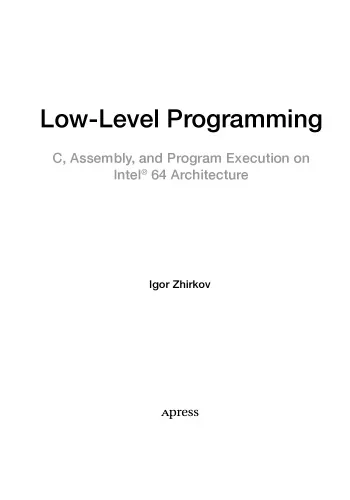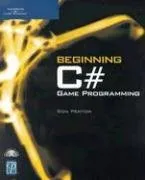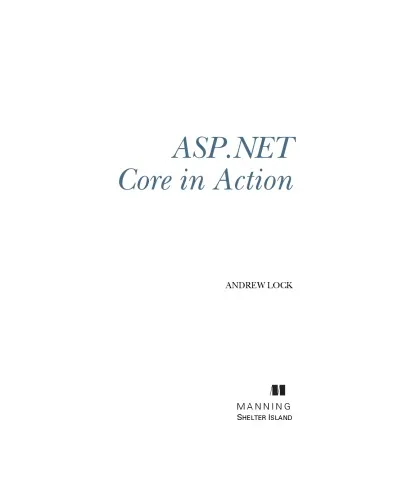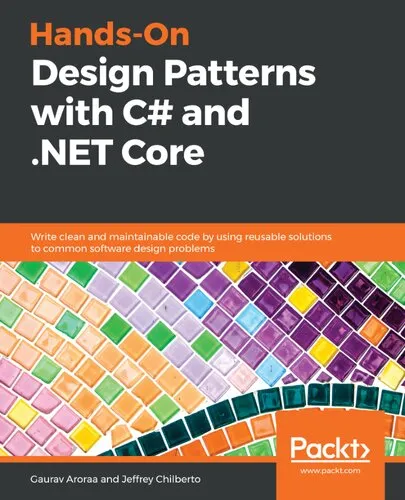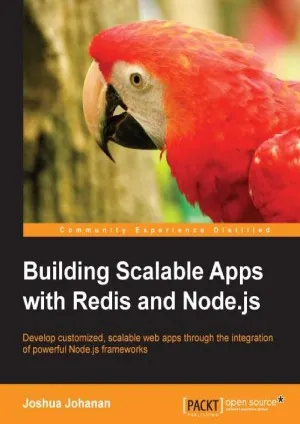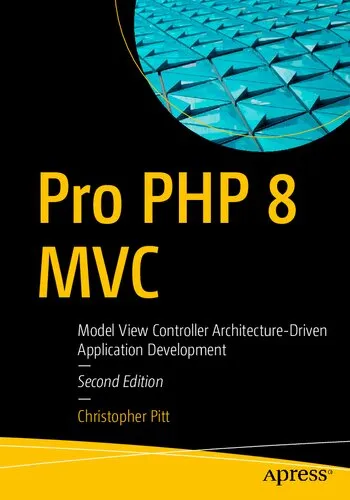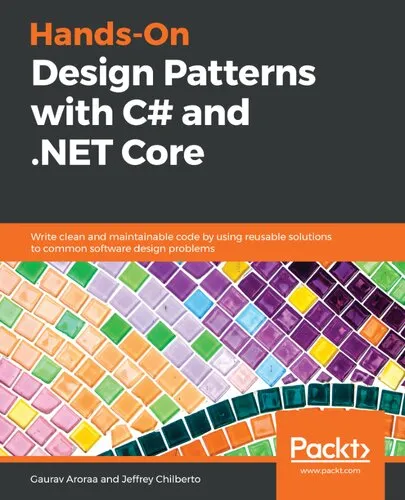Low-Level Programming. C, Assembly and Program Execution on Intel ® 64 Architecture
4.5
Reviews from our users

You Can Ask your questions from this book's AI after Login
Each download or ask from book AI costs 2 points. To earn more free points, please visit the Points Guide Page and complete some valuable actions.Related Refrences:
Welcome to the comprehensive introduction to "Low-Level Programming. C, Assembly and Program Execution on Intel ® 64 Architecture". This book serves as a detailed guide for anyone interested in understanding what happens under the hood of modern software applications. It is a deep dive into the world of low-level programming, with a focus on C programming and Assembly language, specifically tailored to the Intel 64 architecture. Designed to bridge the gap between high-level programming concepts and the machine-level understanding, this book is indispensable for programmers, developers, and computer science enthusiasts.
Detailed Summary of the Book
"Low-Level Programming" offers a meticulous exploration into how software interacts with hardware. Beginning with fundamental concepts, it gradually ascends into more intricate topics, offering readers the necessary knowledge to write efficient C code and understand the corresponding Assembly representations. The book covers a wide array of topics such as memory management, data structures, and system calls, all within the context of the Intel 64 architecture. Throughout its chapters, the book provides practical examples and exercises to help solidify understanding and encourages readers to think about programming from a low-level perspective. Notably, this book also addresses the often overlooked aspect of program execution, enlightening readers on how to optimize their code for better performance and resource management.
Key Takeaways
After engaging with this book, readers will:
- Gain a solid understanding of the C programming language and its relation to Assembly language.
- Learn the intricacies of the Intel 64 architecture, including its instruction set and nuances.
- Grasp core concepts such as stack management, function calls, and memory allocation at a low level.
- Develop skills to write performance-optimized code by understanding what happens during program execution.
- Be equipped to transition from high-level programming to embedded systems and system programming roles.
Famous Quotes from the Book
"The difference between a good programmer and a great one lies in understanding the system deeply and bending it to your will."
"In programming, knowing the 'what' is valuable, but understanding the 'why' transforms good code into excellent software."
Why This Book Matters
In the rapidly evolving world of technology, the demand for high-quality software that performs efficiently on modern hardware architectures is ever-growing. "Low-Level Programming" addresses this critical need by equipping readers with the in-depth knowledge necessary to create efficient programs. As software systems become increasingly complex, having an understanding of how software interacts with hardware becomes crucial not only for developing efficient applications but also for ensuring system security and reliability. By demystifying the layers of abstraction between high-level code and machine architecture, this book empowers readers with the insights needed to push the boundaries of what's possible in software development.
Whether you are a software engineer aiming to optimize existing systems, a student aspiring to grasp the underpinnings of computer science, or a curious mind fascinated by how machines work, this book is an essential addition to your library. It offers not just knowledge, but the tools to innovate and excel in a field that is foundational to the technological era.
Free Direct Download
You Can Download this book after Login
Accessing books through legal platforms and public libraries not only supports the rights of authors and publishers but also contributes to the sustainability of reading culture. Before downloading, please take a moment to consider these options.
Find this book on other platforms:
WorldCat helps you find books in libraries worldwide.
See ratings, reviews, and discussions on Goodreads.
Find and buy rare or used books on AbeBooks.
1467
بازدید4.5
امتیاز0
نظر98%
رضایتReviews:
4.5
Based on 0 users review
Questions & Answers
Ask questions about this book or help others by answering
No questions yet. Be the first to ask!
